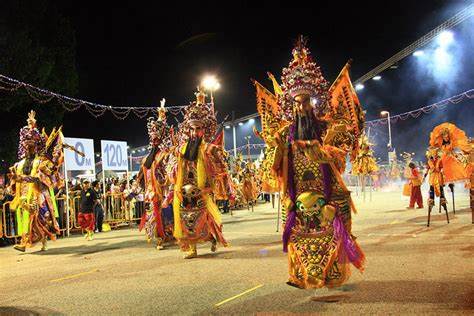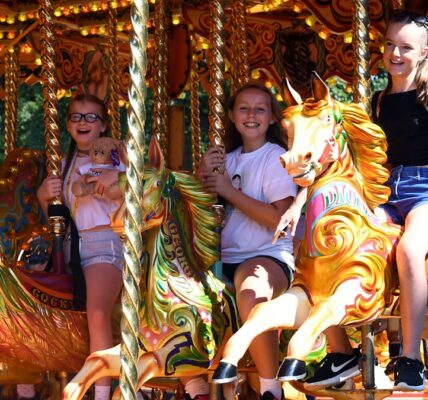Festivals, those vibrant and dynamic celebrations, are an intrinsic part of human culture. They offer a window into the rich tapestry of traditions, values, and expressions that define our world. In this article, we explore the profound importance of festivals, delving into the various aspects that make them a cornerstone of our global heritage.
Preserving Cultural Heritage
Festivals serve as repositories of cultural heritage, preserving traditions that have been passed down through generations. Each festival is a living embodiment of a community’s customs, rituals, and values. Whether it’s the colorful Diwali lights of India, the lively rhythms of Rio Carnival, or the serene simplicity of Japanese hanami, festivals keep traditions alive.
Fostering Unity and Belonging
Festivals have a unique ability to unite people and forge a sense of belonging. They create an atmosphere where strangers become friends, and attendees share in the joy of celebration. This sense of unity strengthens the bonds of communities and nurtures a spirit of togetherness.
Emotional Enrichment
Emotions run deep at festivals. From the exhilaration of a music festival’s crescendo to the warmth of sharing a meal with loved ones, festivals provide a powerful outlet for human emotions. They offer a platform for both personal and collective expression, fostering connections through shared experiences.
Bridging Past and Present: Living History
Festivals bridge the past and present, offering a glimpse into the bygone days while remaining relevant in the modern world. The authenticity of traditions, coupled with contemporary twists, keeps the cultural narrative alive and dynamic. Festivals are a testament to the enduring spirit of human heritage.
Learning from Diversity
Festivals are a window to the world’s diversity. By experiencing different cultures, languages, and traditions, festivalgoers learn and grow. These interactions challenge stereotypes, broaden perspectives, and build a bridge of understanding between people of various backgrounds.
A Gift to the Spirit
The euphoria of festivals brings happiness and joy to individuals and communities. Whether it’s the laughter of children playing during a local fair or the collective jubilation of a city’s New Year’s celebration, festivals have an undeniable impact on the human spirit.
Boosting Local Economies
Festivals play a vital role in the economic well-being of communities. They attract tourists, create jobs, and boost local economies. From food vendors and artisans to musicians and event organizers, festivals contribute to a region’s prosperity.
A Canvas for Artistry
Artistry flourishes at festivals. They serve as platforms for artists, craftsmen, musicians, and performers to showcase their creative talents. From intricate handcrafts and expressive paintings to captivating performances, festivals offer a canvas for artists to share their work with the world.
Promoting Tourism: A Cultural Showcase
Festivals often serve as cultural showcases, attracting visitors from near and far. Travelers seek out these events to immerse themselves in local traditions, taste regional cuisine, and witness the unique sights and sounds that festivals offer.
Learning in a Festive Setting
Festivals are not just about revelry; they are also about education and awareness. Many festivals focus on raising awareness about social and environmental issues. They often offer workshops, presentations, and interactive activities that inform and inspire attendees to take action.
Celebrating Seasons and Nature
Festivals often align with the changing seasons and the rhythms of nature. Whether it’s a spring equinox festival welcoming the rebirth of the earth or a harvest festival celebrating the bounty of the land, these events connect us to the cycles of life. Festivals offer an opportunity to pay homage to the natural world that sustains us.
Rituals and Spirituality
Many festivals are deeply intertwined with spirituality and religious beliefs. They provide a platform for individuals and communities to express their faith and devotion. Whether it’s the grandeur of Easter processions in Spain, the meditative serenity of Buddhist festivals, or the colorful ceremonies of Hindu celebrations, these events serve as a direct link to the divine.
Cultural Preservation
Festivals are guardians of traditions, safeguarding cultural heritage against the sands of time. They offer a space for elders to pass on their wisdom to younger generations, ensuring that customs and rituals remain alive and relevant. Festivals act as a living testament to the values and traditions that define our identities.
In conclusion, festivals are a vital part of human culture, playing multifaceted roles in preserving heritage, fostering unity, and promoting happiness and understanding. They are dynamic expressions of human creativity, spirituality, and the celebration of life itself. As we continue to explore and celebrate the importance of festivals, we acknowledge their enduring significance in our world’s cultural mosaic.




